This accessibility statement applies to www.nonnativespecies.org.
This website is run by the GB Non-native Species Secretariat (NNSS). We want as many people as possible to be able to use this website. For example, that means you should be able to:
- change colours, contrast levels and fonts using browser or device settings
- zoom in up to 400% without the text spilling off the screen
- navigate most of the website using a keyboard or speech recognition software
- listen to most of the website using a screen reader (including the most recent versions of JAWS, NVDA and VoiceOver)
We’ve also made the website text as simple as possible to understand.
AbilityNet has advice on making your device easier to use if you have a disability.
How accessible this website is
We know some parts of this website are not fully accessible:
- you cannot modify the line height or spacing of text
- older PDF documents are not fully accessible to screen reader software
- some of the images, including the distribution maps in our Non-native Species Information Portal, do not have a meaningful text alternative
- an incorrect 'Non-native species information portal' heading is shown at 200%+ zoom
Feedback and contact information
If you find any problems not listed on this page or think we’re not meeting accessibility requirements, please contact us.
If you need information on this website in a different format like accessible PDF, large print, easy read, audio recording or braille:
- email nnss@apha.gov.uk
We’ll consider your request and get back to you in 15 working days.
Enforcement procedure
The Equality and Human Rights Commission (EHRC) is responsible for enforcing the Public Sector Bodies (Websites and Mobile Applications) (No. 2) Accessibility Regulations 2018 (the ‘accessibility regulations’). If you’re not happy with how we respond to your complaint, contact the Equality Advisory and Support Service (EASS).
Technical information about this website’s accessibility
The NNSS is committed to making its website accessible, in accordance with the Public Sector Bodies (Websites and Mobile Applications) (No. 2) Accessibility Regulations 2018.
Compliance status
The website has been tested against the Web Content Accessibility Guidelines (WCAG) 2.1 AA standard.
This website is partially compliant with the Web Content Accessibility Guidelines version 2.1 AA standard, due to the non-compliances and exemptions listed below.
Non-accessible content
The content listed below is non-accessible for the following reasons.
Non-compliance with the accessibility regulations
PDFs and other documents
Many of the PDFs on our website are not accessible to screen readers. This fails WCAG 2.1 success criterion 1.1.1 (non-text content) and WCAG 2.1 success criterion 2.4.5 (Multiple Ways).
We are carrying out a review of the published content on our website, including PDFs. As part of that process, we will, wherever possible, ensure PDFs meet current guidelines or replace them with HTML. We plan to complete this by March 2025.
If you require a particular piece of guidance in a more accessible format, please contact us. Any new PDFs or Word documents we publish will meet accessibility standards.
Text resizing
An incorrect 'Non-native species information portal' heading is shown at 200%+ zoom. This fails WCAG 1.4.4 Resizing Text. We are working with our website provider to correct this and plan to complete this by January 2025.
Images
Some images, including the distribution maps in our Non-native Species Information Portal, do not have a meaningful text alternative, so people using a screen reader cannot access the information. This fails WCAG 2.1 success criterion 1.1.1 (non-text content).
We are carrying out a review of images on our website and will ensure that images have a meaningful text alternative. We plan to complete this by March 2025. When we publish new content we’ll make sure our use of images meets accessibility standards.
Content that’s not within the scope of the accessibility regulations
PDFs and other documents
The accessibility regulations do not require us to fix PDFs or other documents published before 23 September 2018 if they’re not essential to providing our services. For example, we do not plan to fix ID sheets that were published before 23 September 2018.
Any new PDFs or Word documents we publish will meet accessibility standards.
Third-party content
Our site includes third-party content and functionality. This may direct you to a related service, link to another site or supporting documentation. We are not responsible for the accessibility of third-party content or to other sites we link to.
Preparation of this accessibility statement
This statement was prepared on 17th September 2024. It was last reviewed on 17th September 2024.
This website was last tested on 13th September 2024 against the WCAG 2.1 AA standard.
The test was carried out by ITSD, Fera Science Ltd. The most viewed pages were tested using automated testing tools by their website team. A further audit of the website was carried out to the WCAG 2.1 AA standard.
We also used findings from our own testing when preparing this accessibility statement.
